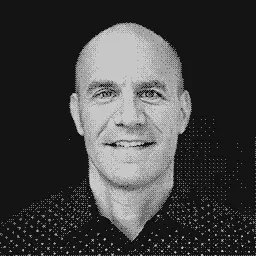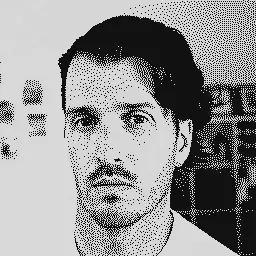About Steady
Steady’s founders have decades of experience leading software teams and working at remote pioneers like GitLab and Basecamp. We use our product every day to stay connected and work better, together.

Our origin story
Henry Poydar, founder here. A few years ago, my startup, where I served as co-founder and CTO, was acquired by a publicly-traded company. As part of the deal, my team and I were charged with swapping out a crucial piece of ten-year-old, highly-trafficked infrastructure — without customer disruption
Our team quickly grew to dozens of people across engineering, ops, product, marketing, and management — all spread out over several time zones. Meeting requests and pings of all sorts were coming in, at all hours, across a myriad of channels — chat, email, app notifications, etc.
Only about 5% of these messages really deserved my attention. But because I didn’t know which 5% mattered, I had to triage them all. I was awash in information and data, but still didn’t have a handle on what was actually getting built and how I could be most useful to my team. It was a chaotic slog. We missed deadlines, the team was unhappy, and I struggled to move the needle despite working long hours.
To untangle this mess, I turned to a human approach: I asked my team to respond to a simple automated email each morning with their written intentions for the day — what they planned to work on and why. With that context, I could proactively manage their upcoming work rather than digging through “metrics” to react to misaligned work. The difference was night and day. We hit our targets. Morale was up. And most importantly, I now had a hands-on-the-wheel feeling of confidence in the team and the project.
But there was still one problem; all the information still had to flow through me. What if everyone on the team had the right context each day to work proactively rather than reactively? That supposition led to my next venture, Status Hero — an application where the whole team could quickly and easily on top of the work that mattered, without back-to-back-to-back meetings and energy-sapping efforts to “get caught up.”
Status Hero was great for individual teams and thrived as the modern work landscape shifted away from patterns of set hours and traditional offices, but cross-team alignment was still a stubborn difficulty for departments and companies.
With the ambition to fix modern work for organizations with multiple teams, we raised an initial round of funding, stacked the team with experienced distributed work professionals, and set to work building “Status Hero 2.0”, now known as Steady. With Steady, each manager and contributor gets a personalized home screen with precisely the context they need from across their whole org — without having to jigsaw together information at the expense of the work itself.
We built Steady on the principles of Continuous Coordination, a proven, open-source practice for prioritizing meaningful human collaboration and empowering teams, abstracted from decades of experience in distributed work and input from colleagues across the tech industry. When you adopt Steady, you’re implementing Continuous Coordination.
We *know* modern work
Steady's leadership is made up of tech veterans who’ve been leading teams and working in remote and hybrid contexts since long before a global pandemic shook things up. We combine a wealth of experience from some of the world’s leading project management and software development companies, including Basecamp and GitLab. These pioneers in the remote-working space helped shape our pragmatic approach to modern work.
Henry has built successful software products and led high-performing software teams for over two decades. His rich professional history includes engineering and leadership roles in a variety of organizations, from remote-first bootstrapped businesses and venture-backed startups to publicly-traded companies with globally distributed teams.
Dinshaw has been building and maintaining commercial web applications since the early 2000's. He has worked as a developer and team lead on projects ranging from self-funded start-ups to publicly-traded, enterprise organizations. He is devoted to practicing and sharing the craft of software and believes that communication and simplicity are the pillars of success.
With 15+ years of experience leading Product Management and Customer Support teams at in-office and fully remote organizations, Michael's intimately familiar with the challenges facing modern teams and leaders. Before Steady, Michael was at GitLab, the largest all-remote company in the world, where he learned best practices for working asynchronously with a global team.
As a former Rails contributor and author of popular open-source libraries like Stimulus, Turbo, and Trix, Javan has 15+ years of experience building software in remote contexts.
Adam’s unique experience working at both traditional tech orgs and remote pioneers like Basecamp — along with 12 years of experience working remotely — give him a deep understanding of the problems that new-to-remote-and-hybrid teams struggle with on a day-to-day basis, and a clear sense of how to solve them.
The development of Steady is supported by notable investors including Early Light Ventures, Inner Loop Capital, Red Shepherd Ventures, and Riptide Ventures.




